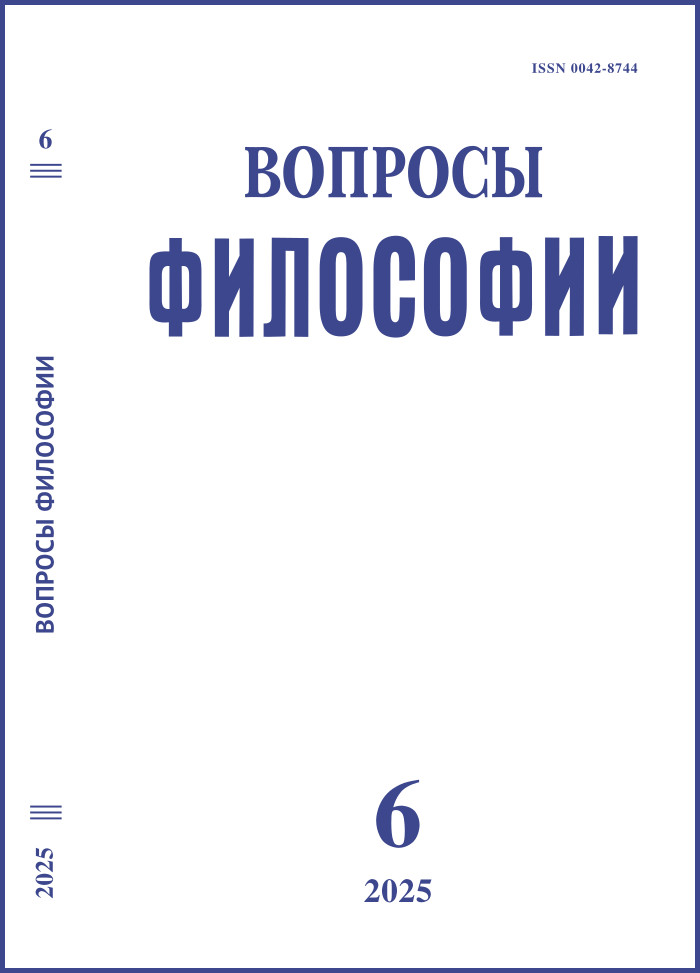Чужая, своя и не-своя-и-не-чужая душевная жизнь. Закон А.И. Введенского и язык интеллекта
DOI:
https://doi.org/10.21146/0042-8744-2025-6-117-132Ключевые слова:
интерсубъективность, чужая душевная жизнь, мышление, искусственный интеллект, язык, нравственное чувство, метафизика, Введенский А.И., Кант, ГуссерльАннотация
Проблема интерсубъективности рассматривается в статье в связи с проблемами функционирования искусственного интеллекта (ИИ). Признание существования чужой и своей душевной жизни рассматривается как неявная предпосылка интерсубъективности. Отмечается коллизия между творческими успехами в области ИИ и анонимностью коммуникации с субъектом нового типа, обладающим интеллектуальным ресурсом, превышающим возможности человека. В аспекте проблемы различия и сходства ИИ с человеческим интеллектом и языком актуализируется тезис (закон) русского философа-кантианца А.И. Введенского об отсутствии объективных признаков душевной жизни других людей. Рассматриваются кантианские истоки этого тезиса и постулата нравственного чувства, которое, по Введенскому, удостоверяет указанное признание. В связи с этим сравнивается значение термина «метафизический» у Введенского и Гуссерля. В мысленном эксперименте Введенского выделяются два аспекта: во-первых, опровержение возможности признать чужую душевную жизнь с помощью аналогии; во-вторых, интерпретация разумной речи как физико-физиологического процесса. На вопрос, мыслит ли машина и владеет ли машина языком, автор статьи дает три разных ответа в зависимости от предпосылок постановки вопроса. Специфика машинного интеллекта и машинного языка, несмотря на все различия, не исключает сходства с человеческим интеллектом и владением языком, которым также в определенной степени присуща «машинальность». В заключении отмечено сходство функционирования машинного интеллекта как обработки данных с кантовской «познавательной способностью» и гуссерлевской «трансцендентальной субъективностью», а также поставлен ряд вопросов относительно возможностей машинного и человеческого интеллекта.

